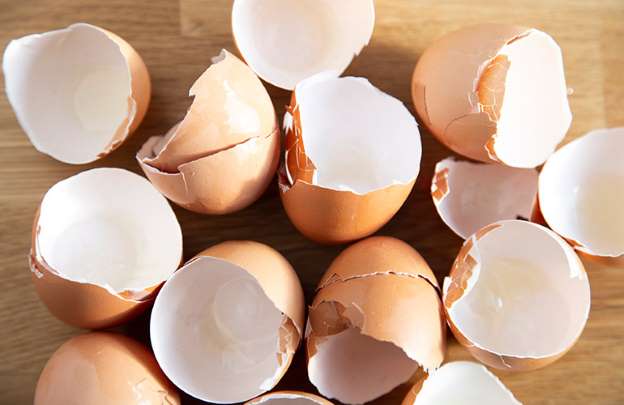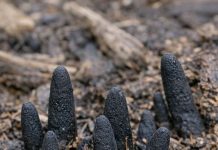In most homes, eggshells end up in the trash. But if you are a gardener, eggs are truly a treasure!
Saving eggshells goes a long way for the thrifty gardener. From seed starting to soil improvement to pest deterrence, they are an incredible resource. Read on to learn why you should use eggshells in your garden.
- Dump Slugs
Cool, wet weather brings slugs in droves, just in time to nibble on newly sprouted green leaves. To combat them, try sharp, coarsely ground eggshells, which irritate the underside of soft-bellied creatures like slugs and snails. Ground eggshells are a great alternative to diatomaceous earth. Simply sprinkle them on the soil around vulnerable plants and apply them after a rain. - Ditch the deer
Everyone knows that eggs have a distinct smell. Fortunately for gardeners, deer really don’t like the smell of eggs. Balcony Garden Web suggests spreading crushed eggshells around the garden to help keep deer at bay. - Promote healthy tomatoes
Blossom end rot, caused by calcium imbalance, is common in tomatoes, peppers and eggplants. Because eggshells contain a good amount of calcium, they are an excellent fertilizer for plants prone to blossom end rot. Martha Stewart suggests crushing four dried eggshells and adding them to the soil around the plant at planting time. As the shells decompose, the plants absorb the calcium.
- Adding minerals to the soil
Eggshells are not only a great addition to the soil around tomatoes, peppers and eggplants. Because of their high mineral content, they are a great addition to the soil in general. Dr. Mercola says that sufficient levels of calcium in the soil ensure healthy plant cells overall. Eggshells also contribute magnesium and other minerals to the soil. Balance is the key, though. It’s always best to test your soil before applying any kind of fertilizer. - Compost
Eggshells are a great addition to compost. It helps to clean, dry and crush them ahead of time so they dissolve quickly. - Start seeds
Save cardboard boxes and eggshells to use as starter pots for your seeds! Start by cleaning and boiling the eggshells, then carefully prick the pointed end of the egg to allow for drainage. Fill the eggshells with the pre-loaded seed mixture and place them back in the egg carton. Then plant your seeds. Once the plants are large enough, break the eggshells to transplant them into your garden. The eggshells can be crushed and added to the soil or your compost bin. - Reduce soil pH
Eggshells can be a great way to improve acidic soil for the home gardener. While not as effective and fast acting as lime, Iowa State University found that eggshells raised the pH of the soil over time. It’s best to test your soil’s pH before taking any action.
CLICK NEXT PAGE BELOW TO CONTINUE READING …










